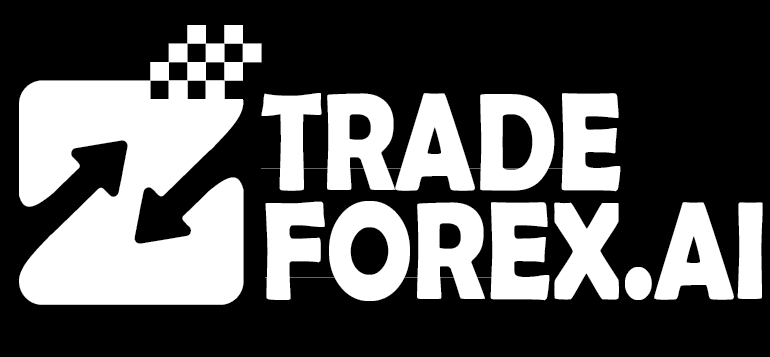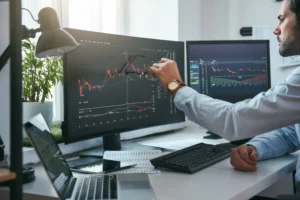Are you ready to step into the world of trading and wondering how to actually succeed as a beginner in 2025? You are not alone. More people are looking for ways to grow their money, achieve financial freedom, and control their financial destiny. However, entering the trading world can feel overwhelming. The good news is that you do not need to be a genius or have a finance degree to get started. What you do need are essential trading skills. These skills will help you handle every market condition, spot real opportunities, and avoid making the mistakes that often wipe out new traders.
Let us explore what these essential trading skills are, how you can build them from scratch, and why they are the foundation for every trading success story. If you are searching for how to learn trading, practical trading education resources, and the smartest ways to practice trading online, this guide will be your roadmap.
The Truth About Essential Trading Skills in 2025
Trading in 2025 is not what it was ten years ago. The markets are faster. News spreads instantly across the globe. New tools, technologies, and apps appear almost every month. Yet, no matter how much the trading world changes, the core skills you need have remained surprisingly consistent. Essential trading skills go far beyond knowing when to buy or sell. They involve understanding the reasons behind market movements, controlling your emotions, and managing your risks like a true professional. Every beginner, no matter where they start, has the power to learn these skills and grow with them.
If you want to be successful, you have to treat trading as a craft. Just as an athlete trains for every possible outcome, traders build their skills step by step. The question most beginners have is simple: How do you learn trading without feeling lost? The answer always starts with quality trading education resources and making a habit of practicing trading online.
Where Every Beginner Should Start
You might be eager to jump in and place your first trade, but the smartest traders take a little time to lay the groundwork. How to learn trading is a question with many answers, but all of them involve starting with the basics.
Begin with the fundamental concepts. Get familiar with how different markets work, what types of trading exist, and the language traders use. What is a pip? How does leverage work? What are the risks involved with margin trading? These questions have straightforward answers in almost every high-quality trading education resource.
Explore blogs, watch videos, and sign up for beginner webinars. Choose sources that are trusted and regularly updated. Once you feel comfortable with the basics, the next step is always to practice trading online. Nearly every major broker offers a demo account where you can apply your new knowledge without risking any real money. These demo platforms help you get used to the trading environment and make the experience real and memorable. The more you practice trading online, the more natural the process becomes.
Technical Analysis
Let us talk about technical analysis, one of the pillars of essential trading skills. This is where traders use charts, price patterns, and indicators to make sense of the markets. At first glance, all those candlesticks, lines, and numbers can look confusing. But with practice, the story behind every price movement starts to make sense.
Technical analysis is about learning to read the market’s language. Each candlestick tells a story of buyers and sellers competing for control. Indicators like moving averages, the Relative Strength Index, or the MACD give clues about what might happen next. Many trading education resources offer step-by-step guides and interactive tools to help you grasp these concepts.
Begin with the basics. Focus on understanding support and resistance levels. See how simple patterns like double tops or triangles play out on different timeframes. Practice trading online with these tools by using your demo account. The goal is not to predict every move perfectly but to improve your ability to recognise opportunities and make informed decisions.
Keep track of your progress as you practice trading online. Record the setups you spot and review how they worked out. Over time, your confidence will grow, and technical analysis will become second nature. This is a key part of building the essential trading skills that separate consistent traders from beginners.
Fundamental Analysis: Seeing the Big Picture
While technical analysis helps you read the immediate market moves, fundamental analysis gives you the bigger picture. It is about understanding the real-world factors that drive prices up or down. These factors might include economic news, political decisions, corporate earnings, and even global events.
Successful trading for beginners often starts with learning to interpret news and reports. Use trading education resources that provide economic calendars, market news, and analysis. Study how interest rate changes, employment data, and trade agreements move the markets. Try to connect the dots between events in the news and the trends you see in the charts.
Practice trading online by setting up trades based on upcoming news releases. Predict what you think will happen, place a simulated trade, and see how the market reacts. Over time, you will notice patterns and become more comfortable making decisions with the full picture in mind. By combining both technical and fundamental analysis, you expand your toolkit and deepen your essential trading skills.
Protecting Your Capital for the Long Run
Ask any experienced trader, and they will tell you that risk management is not just important—it is everything. Essential trading skills are not only about making money. They are about making sure you do not lose it all in a single trade.
One of the most important principles for trading beginners is to always set clear limits on how much you are willing to lose. Only risk a small percentage of your trading capital on each trade. This way, even a string of losses will not end your journey. Learn to use stop-loss and take-profit orders effectively. These tools are your best defence against emotional decision-making and unexpected market moves.
Many trading education resources offer risk calculators and guides to help you set these limits. Practice trading online with these risk management strategies. Try out different stop-loss levels, experiment with various trade sizes, and review your results. Over time, you will see the direct connection between disciplined risk management and steady growth.
Risk management is not just a technical skill. It is a mindset. Every time you protect your capital, you build habits that will serve you throughout your trading career.
The Psychology of Trading
Many people do not realise that trading is as much about psychology as it is about numbers and charts. Emotions run high when money is on the line. Excitement after a win, frustration after a loss, and the constant urge to chase after the next big move—these feelings are universal.
Developing emotional control is a huge part of essential trading skills. It is about sticking to your plan even when you are tempted to take shortcuts or break your own rules. Start by keeping a journal of your trades. Write down not only your reasons for entering or exiting a trade but also how you felt at the time. Look for patterns. Were you more likely to make mistakes after a big win or a series of losses?
Use trading education resources that offer insights into trading psychology and discipline. Many courses and books focus on the mental side of trading and give you practical strategies to stay focused. Practice trading online in your demo account with a specific goal in mind, such as following your plan exactly or keeping your emotions in check after each trade.
Emotional control does not come overnight. It is a skill you develop with experience and self-awareness. The more you practice, the easier it becomes to make calm, rational decisions no matter what the market is doing.
Making the Most of Trading Education Resources
There are more trading education resources available today than ever before. From online courses to podcasts, trading blogs to interactive webinars, the choices can feel endless. However, quality matters more than quantity.
Choose resources that are well-reviewed and recommended by other traders. Look for platforms that offer clear explanations, up-to-date information, and practical exercises. Many top trading education resources also include access to demo accounts, so you can immediately apply what you learn.
Take your time with each lesson. Complete every module, participate in quizzes, and ask questions in community forums. When you find a resource that really helps, stick with it until you master the topic. The goal is to make these essential trading skills part of your everyday routine.
Join online communities and forums related to trading for beginners. Being part of a group keeps you motivated and accountable. You will also learn faster by sharing ideas and seeing how others approach the same challenges.
Practice Trading Online
Knowledge is only valuable when you use it. That is why practicing trading online is so important for every beginner. Demo accounts let you trade in real time using virtual money. You can test new strategies, try out risk management techniques, and build your confidence without any fear of losing real money.
Set goals for each practice session. Focus on mastering a specific trading strategy or working on your emotional discipline. Track your performance over time and review your results. Ask yourself what worked well, what did not, and what you can improve next time.
Treat your demo account seriously. Use the same mindset, planning, and risk rules you will use when you go live. This way, when you finally make the move to a real account, your essential trading skills will be strong and automatic.
Remember, even professional traders use demo accounts to refine their skills or test new ideas. Practicing trading online is not just for beginners. It is a habit that supports long-term success.
Building Your Own Trading Plan
Once you have the basics down, it is time to create your personal trading plan. This is your blueprint for every trading decision. A strong trading plan includes your goals, your preferred trading styles, risk limits, entry and exit rules, and a schedule for reviewing your trades.
Many trading education resources provide templates and examples to help you get started. Use your demo account to test your plan and adjust it as you learn. Make sure your plan is realistic for your lifestyle and commitments. Do you want to trade daily, or just a few times a week? What markets are you most interested in? How much capital can you safely risk?
Update your plan regularly. The markets in 2025 are always evolving, and your strategies should evolve with them. Successful traders treat their plan as a living document, always open to improvement.
Adapting to New Technologies and Trends
Trading in 2025 means adapting to new technologies faster than ever before. Automated trading, algorithmic strategies, artificial intelligence, and social trading platforms are now part of everyday trading life. Essential trading skills now include the ability to evaluate and use these tools effectively.
Stay curious and keep learning. Use trading education resources that cover emerging trends and new platforms. Take the time to practice trading online with new tools, whether it is a new indicator, a trading bot, or an app that offers smarter analytics.
Technology can make you more efficient, but only if you understand how it works and where its limits are. Do not rush to use every new tool. Instead, focus on those that support your trading plan and help you make better decisions.
The Power of Networking and Community
Learning on your own can sometimes feel isolating, especially when you hit a rough patch. That is why connecting with other traders is so valuable. Online communities, forums, and social media groups give you a place to ask questions, share your progress, and get feedback.
Many trading education resources include access to private groups or discussion boards. These spaces are great for trading beginners who want to learn faster and stay motivated. By joining discussions and participating in group challenges, you will gain new insights and avoid common beginner mistakes.
Networking can also lead to mentorships and new opportunities. The trading world is full of experienced people who are happy to help if you show commitment and a willingness to learn.
Staying Consistent and Motivated
Success in trading is rarely about one big win. It is about consistency—showing up every day, learning from every trade, and sticking to your plan. Essential trading skills are built over time, through daily habits and constant improvement.
Celebrate your small victories along the way. Maybe you followed your plan perfectly for a week, or you controlled your emotions better than before. Use trading education resources for fresh content and motivation. Read stories of traders who started out just like you and found success through patience and discipline.
If you ever feel stuck or lose motivation, take a short break. Reflect on your progress, revisit your goals, and remember why you started. The journey is long, but every step brings you closer to trading success.
Essential Trading Skills and Your Long-Term Success
Let us bring it all together. The trading landscape in 2025 will keep changing, but the essential trading skills you build today will always serve you well. Start with the basics. Focus on quality trading education resources. Practice trading online every chance you get. Control your risks. Master your emotions. Join a community. Stay curious and open to learning.
There is no secret shortcut. Every successful trader, from beginner to pro, learns, adapts, and keeps moving forward. Your journey will be unique, and there will be challenges along the way. But with the right skills, you will be prepared for anything the market throws at you.
So, what are you waiting for? Begin your path to mastering essential trading skills today. Explore trading education resources, open your first demo account, and make practicing trading online part of your daily routine. Each lesson brings you closer to real confidence and real results. In 2025 and beyond, those who put in the effort now will be the ones celebrating their success.
If you need more in-depth guidance, want help choosing the best trading education resources, or have questions about practice trading online, do not hesitate to explore further. The world of trading is waiting for you—and your story is just getting started.
Read here to learn more about “Learn forex trading from scratch easy guide for beginners“

I’m Chaitali Sethi, a financial writer and market strategist focused on Forex trading, market behaviour, and trader psychology. I simplify complex market movements into clear, practical insights that help traders make better decisions and build a stronger trading mindset.




